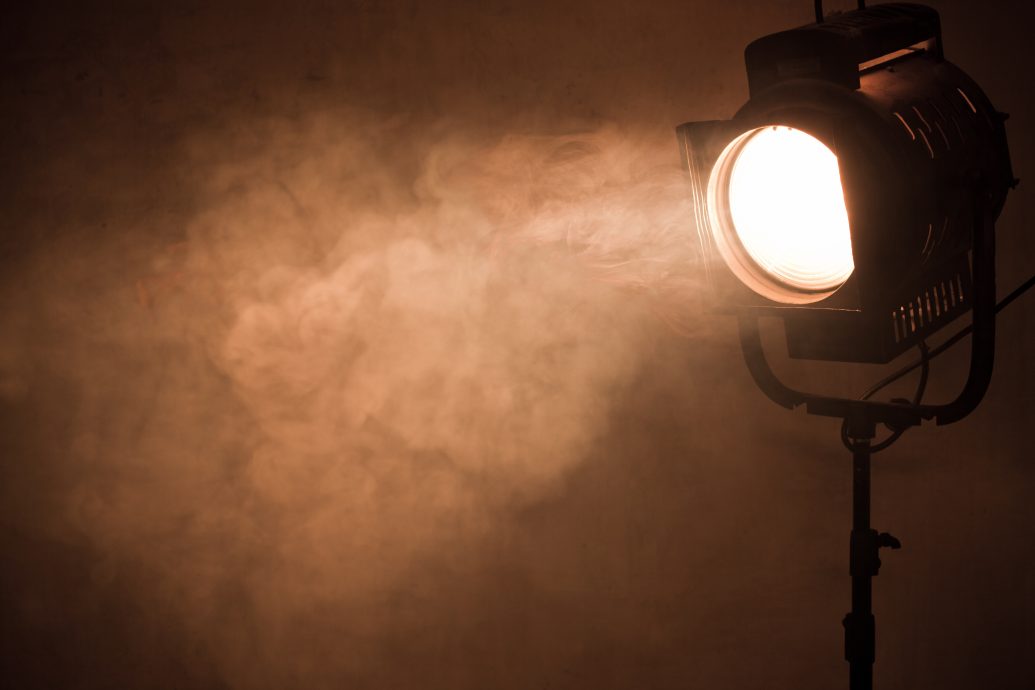Stout Ukrainian defiance has reminded us of the difference between the good and bad sorts of nationalism.
The Book that Nailed Hollywood
It was 25 years ago that HarperCollins published what is today considered something of a conservative classic, Hollywood vs. America: Popular Culture and the War on Traditional Values. The irony is that the book was written by a liberal who avoided being drafted to serve in the Vietnam war.
Michael Medved, at that time a film critic cohosting PBS’s “Sneak Previews,” had been a member of the New Left in his youth. After reading Aleksandr Solzhenitsyn’s The Gulag Archipelago, Medved concluded that Ronald Reagan, the bane of 1960s leftists, presented a truer picture of the Soviet Union than did George McGovern, the presidential candidate on whose campaign Medved had worked in 1972.
Medved changed regarding foreign policy but his concerns about corrosive popular culture were, as he presented them, nonpartisan. He was incensed, as a liberal and a defender of women’s rights, that Time-Warner and other U.S. corporations were making sex and violence mainstream through the movies, television, and music they bankrolled.
Anti-corporate liberal that he was, Medved still didn’t stay off the Left’s radar screen. What earned him their ire was his massive bestseller, Hollywood vs. America. Watching six movies a week to prepare for his appearances on “Sneak Previews,” he said, “I began to feel like a glorified sewer inspector.” Hence his book, in which he argued that the elites who ran Hollywood, hostile to organized religion and hostile to basic American patriotism, not only were disconnected from the American people but were quite deliberate in maintaining the disconnect, usually favoring cynical or transgressive material over more wholesome fare even though the latter would have sold well. Their motive, Medved wrote, wasn’t primarily money but to be seen by their peers as “serious,” as critics of American society.
The response from the intellectual class was harsh. British writer Martin Amis ridiculed Medved’s claim that movie violence begat real-life violence. Medved’s fellow movie critic David Denby blasted Hollywood vs. America as “the “stupidest book about popular culture that I have ever read.”
Not that the book didn’t have its flaws. The Golden Age to which Medved wanted the movie industry to return produced films that, contrary to his main thesis, weren’t always sturdily patriotic and moral. Unlike the Andy Hardy-type pictures highlighting small-town virtues, the film noire genre (such movies as 1941’s The Maltese Falcon and 1947’s Crossfire) frequently portrayed a “fascist” America peopled by brutal cops and the corrupt rich who enabled them, and were known to glory in the seamier side of human existence.
Some classic movies, moreover, contained physical abuse and even rape. Gone With The Wind (1939), often cited as the best film made by Old Hollywood, had a scene where Clark Gable raped Vivian Leigh (off-camera); and then the film portrayed her actually enjoying it in a morning-after post-coital bliss.
That said, Medved scored considerable points when comparing the excesses of Left Coast Hollywood circa 1992 to the more admirable qualities of Old Hollywood. He even defended that bête noir of the cinephiles, the Hays Code, a set of restrictions enforced by an industry watchdog group that for over 30 years (the 1930s to the 1960s) tried to keep immorality off the screen. For Medved, these rules of proper onscreen behavior actually honed the skills of filmmakers, as directors and screenwriters were forced to treat adult themes in imaginative and subtle ways. They had to be, and became, more creative under the Hays strictures.
The same could not be said of the “New Hollywood” that burst forth in the late 1960s, whose arrival was assured when the Hays Code was jettisoned. Amidst this new plethora of graphic violence, sex and profanity, filmmakers no longer had to be all that creative—nudity and gore did their work for them. This liberation, so to speak, combined with an injection of “New Left”-style politics designating America as the villain, made movies more nihilistic.
Not even the presidency of Old Hollywood actor Ronald Reagan, whose rise was attributable to the reemergence of patriotism in the populace, took movies out of the gutter. The “action” genre is a case in point. Ironically, the high body count, sadistic humor, and reliance on the f-word in the 1980s action films were established by three actors who voted Republican: Sylvester Stallone, Arnold Schwarzenegger, and Bruce Willis.
To be fair, Stallone’s Rambo films, for all their creative killing and unappealing angst, at least tried to address the mistreatment of Vietnam veterans and patriotically brought back the Russians as villains. But no such elements can be found in the Schwarzenegger or Willis extravaganzas, most of which amounted to saying that victory over the bad guys depended only on the amount of firepower one packed and how often one could get sadistic laughs from the audience. (The best example of this merging of sadism with profanity could be when Schwarzenegger, in 1990’s Total Recall, put a bullet through the head of his villainous wife and quipped, “Consider that a divorce.”)
Appealing to the base instincts of their audiences, it was apparent that, their private beliefs to the contrary notwithstanding, the only Republicanism these three evinced was economic, centered on how much they could enrich themselves from the free market.
Political crusading through movie-making, on the other hand, didn’t necessarily raise the level of quality. What that did was beget a stream of films with a relentless ideological message at odds with mainstream America. It was this anti-American group that was the main focus of Medved’s criticism in his book.
Not even repeated box office bombs halted the cultural onslaught. It included Warren Beatty’s Reds (1981), a warm biopic of American communist John Reed, whose fervent support of the Bolshevik Revolution earned him a burial in the Kremlin. Reds paved the way for other moist tributes to communists such as Robert Redford’s paean to Fidel Castro, Havana (1990). Ken Russell’s portrayal of Catholic priests as bed-hopping hedonists and sadistic torturers, The Devils (1971) paved the way for The Last Temptation of Christ (1988), which contained scenes of Jesus helping the Romans crucify an innocent Jew, and fantasizing about sex with Mary Magdalene.
Since Hollywood vs. America covered movies from the late 1960s to the early 1990s, one wonders: has it, and other books like it, influenced the film industry since? While it’s hard to establish causation in such matters, there is considerable proof that social conservatism of the Medved sort (and he did become a full-fledged conservative, as attested by his 2005 book Right Turns) has changed what has come out of the movie industry in the last quarter century.
In that time, it has become fashionable for even liberals to make movies that strike a note of patriotism. Whereas it used to be verboten to depict the Soviet Union as villainous, liberal director Mike Nichols, liberal screenwriter Aaron Sorkin, and the equally liberal actor Tom Hanks made Charlie Wilson’s War (2007), which depicted Russian brutality inflicted on Afghan women and children, and celebrated the heroic efforts of Texas Democratic congressman Charlie Wilson in equipping Afghan soldiers with the crucial weapons that defeated their Soviet invaders.
Another Hanks vehicle, Stephen Spielberg’s Bridge of Spies (2015), captured the sinister quality of the East German communist regime. In the film, set in the early 1960s, East German guards machine-gunned those trying to escape to the West. And the movie contrasted the Americans’ humane treatment of a captured and imprisoned Soviet spy with the brutal treatment inflicted on a downed American pilot by Soviet guards. (See the review I wrote of it for Law and Liberty.)
Hollywood has, moreover, brought this heroic treatment into movies dealing with the War on Terror. United 93 (2006) depicted the real-life self-sacrifice of American passengers in preventing the terrorists who hijacked their plane from ramming it into the White House or the U.S. Capitol.
The ever-popular comic book-based movies have also become, if not patriotic, at least less downbeat. While Michael Keaton’s Batman was a revenge-seeking nut job in the 1989 film, the 21st century version of the character is much more altruistic. As played by Christian Bale in 2008, the character, while staying true to his sinister roots, channels his anger into protecting the innocents of the crime-ridden Gotham City.
Some liberals have even praised the return of heroism to the screen. And yet none of the anger they displayed toward Medved has abated since 1992. It is anger perhaps tinged with frustration, for he can’t be stereotyped as a Bible-thumping red state fundamentalist railing against “Satanic” Hollywood, given that he is a Philadelphia-born and California-raised Jew who relies on logic and empiricism to mount his criticisms of the movie industry.
And Medved’s political roots, as mentioned, were liberal and Democratic. He has something in common with Democrats like Tipper Gore and the fabled film critic Pauline Kael who, although an arch-liberal, did not reflexively go along with the “edgy” trends of the 1960s and 1970s. Writing of the ultra-violent films that made such a splash in the 1970s, Kael in effect anticipated Medved’s analysis. As she wrote in 1971:
At the movies, we are gradually being conditioned to accept violence as a sensual pleasure. . . . There seems to be an assumption that if you’re offended by movie brutality, you are somehow playing into the hands of the people who want censorship. But this would deny those of us who don’t believe in censorship the use of the only counterbalance: the freedom of the press to say that there’s anything conceivably damaging in these films . . . If we don’t use this critical freedom, we are implicitly saying that no brutality is too much for us. Yet surely, when night after night atrocities are served up to us as entertainment, it’s worth some anxiety. . . . How can people go on talking about the dazzling brilliance of movies and not notice that the directors are sucking up to the thugs in the audience?
Like Kael, Medved did not in 1992, and does not now, advocate censorship as a means to deal with amoral violence. He even accepts that such violence is necessary if the story demands it. Also like Kael, he is aware of the hazing engaged in by liberals toward someone who steps out of line and even mildly criticizes movie brutality or sexual sleaze. He refuses to play this rigged game, in which critics are stunned into silence out of the dread fear that they may sound socially conservative.



